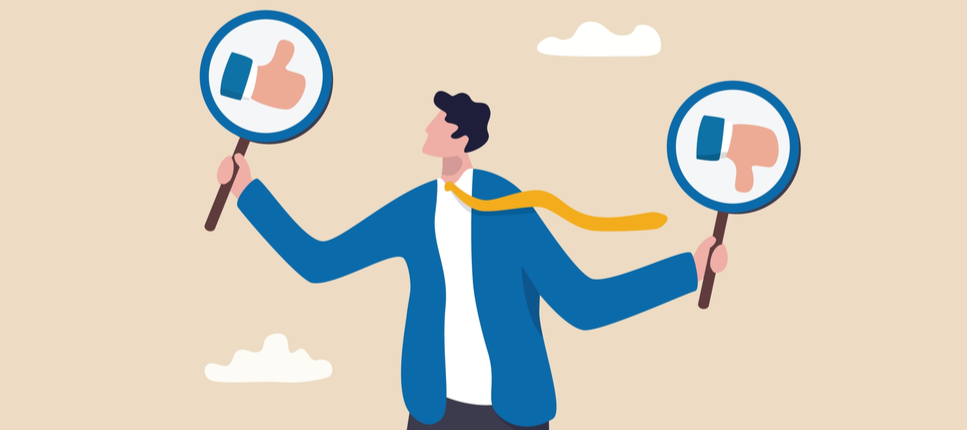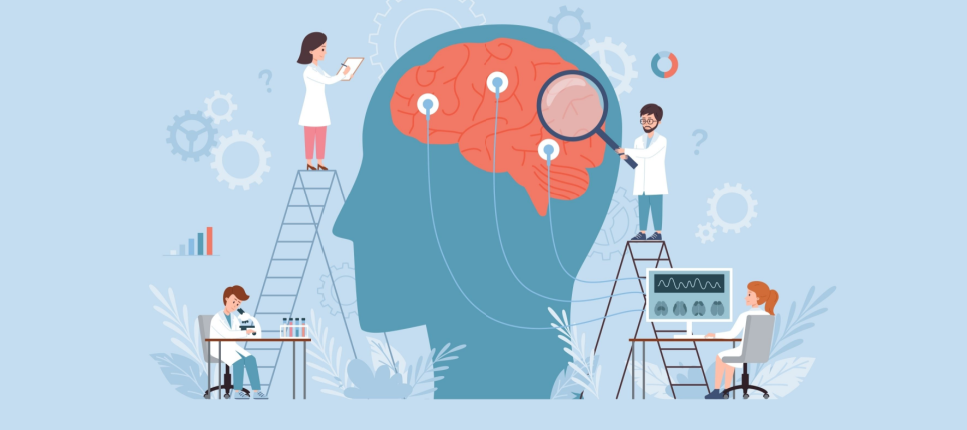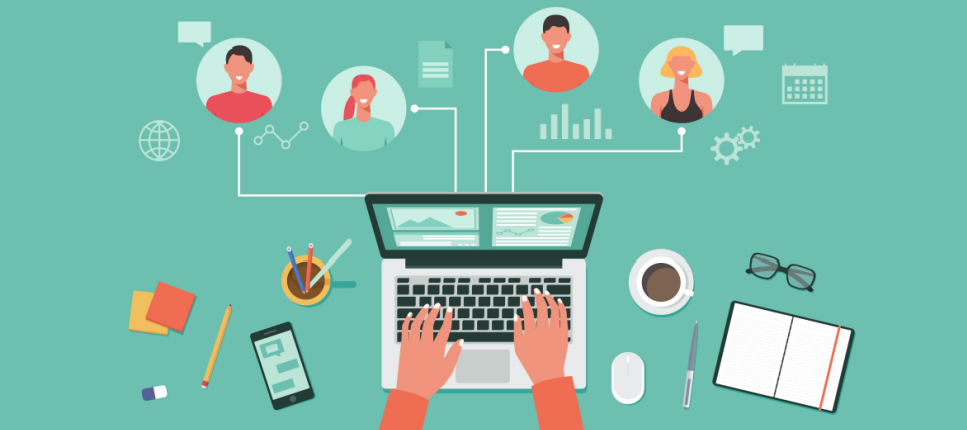Knowing more about the modus operandi of a learning brain allows us to re-evaluate our approaches to teaching and studying. As we know, studying is just as important as attending class, if not more so. However, thanks to neuroscience, we now know that not all study strategies are equal and that some are even counterproductive, despite being used for generations. To guide you, here are three mistakes to avoid when you are in study mode!
Mistake 1
Relying on repetition rather than reactivation. In the brain, all learning results from repeated activation of neurons related to the targeted learning. However, rereading the lesson to be mastered repeatedly (ad nauseam!) is not the best way to activate your neurons. On the contrary, prolonged practice leads to a decrease in neuronal activation, which can be recognized by the fact that the study suddenly seems easier and less motivating. At these signs, it is better to put it aside and return to it later, ideally after a 24-hour delay for the first sessions.
One of the most effective ways to stimulate neural activation is to practice memory retrieval, also known as “recall,” which consists of searching in one’s head for learned information that has not yet been consolidated — moving it from long-term memory to working memory. For example, after a first rereading of your lecture notes, it is advisable to practice this memory retrieval by writing down what you remember, rephrasing explanations, solving a problem, or answering questions about the subject. To avoid cognitive overload, it is necessary to start by practicing the memory retrieval of the basic notions essential to the understanding of complex subjects before tackling the latter.
Mistake 2
Neglecting feedback. In a memory retrieval exercise, the learner must check or be validated if their answers to a problem are correct. This “feedback” step is crucial to learning because it sends a signal to the brain that helps encode the answer and allows it to be corrected if it is wrong, preventing the unfortunate encoding of errors. The problem here is not the fact of giving a wrong answer to a memory retrieval exercise that will be corrected by feedback, but of mistakenly believing that one has the correct answer or that one has understood the material correctly without correcting oneself or being corrected. Since this risk is higher when studying alone, it is recommended that you take more time to ensure that you have understood the concepts and to catch your mistakes if they occur.
Suppose you are the teacher or other person in charge of giving feedback to the learner. In that case, if the learner is wrong, rather than giving the correct answer right away, it is better to encourage them to dig a little deeper to find the answer or rephrase incorrect explanations by giving more clues. As we have seen, by searching in our head, we reactivate the neurons linked to the targeted learning.
There are two types of feedback. Feedback confirming a correct response is called “positive,” and feedback that corrects an incorrect response is called “negative.” While positive feedback is particularly influential for learning because it generates a sense of satisfaction in the learner — through the release of dopamine, for example, which encourages the learner to repeat the behaviour —, negative feedback also has its place. The feeling of surprise that emerges when one realizes a mistake actively participates in a better encoding of this learning. For negative feedback to be effective, the learners must have explanations that allow them to understand the error.
Mistake 3
Stopping studying as soon as our performance is satisfactory. It is common to declare “mission accomplished” and stop studying as soon as we feel we have mastered the material. Yet, learning beyond satisfactory performance — called “overlearning” — is a winning strategy. While this recommendation may seem to contradict the first point of this article, it does not! While the first point was about the ease that you eventually feel within a single study session, this is about the mastery that comes after several sessions (well staggered over time).
Overlearning not only strengthens (consolidates) the neural connections related to the targeted learning — so that knowledge is less likely to be forgotten —, but also allows for deeper learning. This becomes possible because the prefrontal cortex, the seat of our higher cognitive functions (attention, reasoning, working memory, etc.), is less solicited than at the beginning of learning when the new knowledge has become automatic. By unloading, this brain area becomes freer to focus on complex tasks and think; we can then juggle concepts, analyze them, establish links between our old and new knowledge, etc. Therefore, once we have mastered a subject — usually after a few study sessions — it is wise to push our learning further (especially through memory retrieval training) while stopping when this angle no longer challenges us.
Sources:
-
Eriksson et al., Rewiring the brain with repeated retrieval: a parametric fMRI study of the testing effect, 2011.
-
Vestergren et Nyberg, Testing alters brain activity during subsequent restudy: Evidence for test-potentiated encoding, 2013.
-
Zaromb et Roediger, The testing effect in free recall is associated with enhanced organizational processes, 2010.
-
Adesope et al., Rethinking the Use of Tests: A Meta-Analysis of Practice Testing, 2017.
-
Riviera et al., Developmental changes in mental arithmetic: evidence for increased functional specialization in the left inferior parietal cortex, 2005.
-
Wagner et al., Building Memories: Remembering and Forgetting of Verbal Experiences as Predicted by Brain Activity, 1998.
-
Steve Masson – Cerveau et apprentissage
-
Dossier Les super pouvoirs du cerveau du Sciences et Avenir, septembre 2021.
Related articles:
- 8 Proven Tips for Optimal Learning
- Neuroscience: learning in 4 steps
- 5 Factors Influencing Memory Process
- Our two short-term memories
- Long-Term Memory: Its 3 Chronological Processes
- Are we really good at multitasking?
- Attention, in numbers
- At the very heart of the feeling of personal effectiveness
- The Learner and The Feeling of Self-Efficacy
- Metacognition in 3 Questions
- Develop Your Metacognitive Skills
- How to help your brain “unplug”
- Rest and Recuperate Smartly
- Studying with Breaks: 3 Effective “Training” Programs
- The importance of emotions in learning
- 4 emotions of learning
- Online training in empathic mode
- Adult Learners and Play: 5 Research Findings
- Is Having Fun in Higher Education the Way Forward?
- The Learner and The Feeling of Self-Efficacy
Author:
Catherine Meilleur
Creative Content Writer @KnowledgeOne. Questioner of questions. Hyperflexible stubborn. Contemplative yogi.
Catherine Meilleur has over 15 years of experience in research and writing. Having worked as a journalist and educational designer, she is interested in everything related to learning: from educational psychology to neuroscience, and the latest innovations that can serve learners, such as virtual and augmented reality. She is also passionate about issues related to the future of education at a time when a real revolution is taking place, propelled by digital technology and artificial intelligence.






